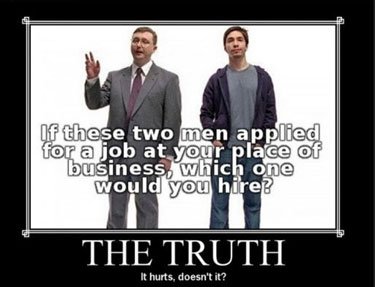Hat tip to Ratak Monodosico.
Loch Ness Monster Visible Late Last Year on Apple Maps
Apple, Cryptozoology, Loch Ness Monster
The Daily Mail reports that, late last year, an ordinary Briton playing with Apples maps decided to check out the satellite images of Loch Ness and found the above catfish-like image.
Andrew Dixon, 26, a charity worker for the Great North Air Ambulance, from Darlington, County Durham, said: ‘It was a total fluke that I found it. I was looking at satellite images of my town and then just thought I’d have a look at Loch Ness.
‘The first thing that came into my head when I saw it was, “That’s the Loch Ness Monsterâ€. It was the shape of it, I thought it had to be something more than a shadow.
Read the whole thing.
More at Computer Magazine.
————————————————–
I think commenters at Gizmodo have successfully debunked this one.
Hat tip to Karen L. Myers.
One More Good Reason Not To Buy Apple
Apple, Tobacco, Tolerance
Cory Doctorow gleefully passes along some decidedly damaging accounts of sanctimonious corporate malfeasance.
Consumerist’s Laura Northrup rounds up several years’ worth of stories from Apple customers who say they were denied warranty support on their computers because they’d smoked around them. As an annoying ex-smoker, I can sympathize with a tech who doesn’t want to work on a machine that smells like an old ashtray, but that’s what painter’s masks are for — I’ve also serviced machines that reeked of BO and other less savory odors. This just feels like a way to weasel out of doing warranty service and forcing customers to pay for new machines. If the company has a policy of not fixing machines if you smoke near them, it should say so when it sells you the warranty: WARNING: IF YOU LIGHT UP NEAR YOUR LAPTOP, WE WON’T EVER FIX IT, EVEN IF IT IS MATERIALLY DEFECTIVE.
1976 Saul Steinberg New Yorker Cover, Apple Maps Version
Apple, Apple Maps, Mad Magazine, Maps, New Yorker, New Yorker Cover, Parody, Saul Steinberg
Apple Vs. PC
Apple, Apple Vs. PC, Microsoft, Technology, Windows
Jason Stewart (a self-described Apple addict) does not have much good to say about the current (incredibly expensive) MacBook Pro.
As Dan Ackerman at CNet noted, the Retina Mac “feels like a rest stop on the road to somewhere else,†a place where we truly get thin, light and beautiful. Already, the Samsung Series 9 is smaller and lighter. And many of the rest of the radical changes are more marketing hype than features. The asymmetrical fan blades that were going to revolutionize quiet laptop cooling? If you try real hard, you might hear a trivial difference. What about the “All Flash Architecture� In other words, whereas before you had a choice between a fast, but ridiculously expensive SSD drive, or a cheaper, larger capacity conventional hard drive, now you can only have the SSD drive. Only Apple could successfully market that limitation as a revolutionary feature.
Of course, if you need to connect an Ethernet cable you better shell out extra for a dongle and hope you can find it when you need it. Need to watch a movie on disc or load a program or content the old fashioned way? Apple has just the extra accessory to sell you for that, too, since it is no longer included.
The new MacBook Pro with Retina display is a nice computer. The screen is innovative at a cost of both dollars and features. Whether it’s worth the substantial premium (more than $4,000, fully loaded) is a personal decision. Apple has never been accused of catering to the wish lists of the masses, and this is no exception. It has staked its claim on a new display standard and if that means trade-offs, take it or leave it.
———————————-
Meanwhile, Harry McCracken contends that the Mac world and the PC world are already very different and may soon becoming even more so.
When I sat down to review Apple’s new Retina-display MacBook Pro, I instinctively wanted to compare it with similar Windows laptops. I wanted to discuss how the specs stacked up and whether the price seemed fair. I hoped to contrast its industrial design with those of its closest counterparts.
Then it dawned on me: there are no similar Windows laptops. …
while Apple remains the most influential computer maker in the business, the rest of the industry has chosen to ignore some of its design innovations. When it started sealing up its portables a few years ago — eliminating the ability to easily swap in batteries, RAM and hard drives — I thought that other hardware makers might follow along. For the most part, they haven’t. …
[I]f Microsoft has its way, PCs and Macs are about to get more different than they’ve been in decades. For all of the interesting things about the new MacBook Pro, it’s a straightforward notebook computer based on a form factor that’s been around for 30 years. Apple seems to be content to let Macs be Macs, while the iPad goes places that computing devices never have before.
With Windows 8, however, Microsoft is trying to reinvent the PC from scratch. The Metro interface has little to do with the basic concepts that Windows 7 and OS X share, and it’s conceivable that a bunch of long-standing form factors that have never quite worked, such as touchscreen PCs and laptops that convert into tablets, will finally take off. If they do, and Apple doesn’t push the Mac in the same direction, the average Windows PC could end up having very little in common with any Mac.
Steve Jobs Quotations
Apple, Obituaries, Steve Jobs
“I want to put a ding in the universe.” – 1981 (probably)
——————-
We’re gambling on our vision, and we would rather do that than make “me too” products. Let some other companies do that. For us, it’s always the next dream (Jan. 1984, on the release of the Macintosh computer)
——————-
You can’t just ask customers what they want and then try to give that to them. By the time you get it built, they’ll want something new. (1989)
——————-
“I’m convinced that about half of what separates the successful entrepreneurs from the non-successful ones is pure perseverance.” – 1995
——————-
The only problem with Microsoft is they just have no taste. They have absolutely no taste. And I don’t mean that in a small way, I mean that in a big way, in the sense that they don’t think of original ideas, and they don’t bring much culture into their products. . . . I have no problem with their success. They’ve earned their success, for the most part. I have a problem with the fact that they just make really third-rate products. (1996)
——————-
You’ve baked a really lovely cake, but then you’ve used dog sh*t for frosting. (commenting on a NeXT programmer’s poor work)
——————-
When you’re young, you look at television and think, There’s a conspiracy. The networks have conspired to dumb us down. But when you get a little older, you realize that’s not true. The networks are in business to give people exactly what they want. That’s a far more depressing thought. Conspiracy is optimistic! You can shoot the bastards! We can have a revolution! But the networks are really in business to give people what they want. It’s the truth. (from interview in WIRED magazine, 1996)
——————-
I was worth about over a million dollars when I was twenty-three and over ten million dollars when I was twenty-four, and over a hundred million dollars when I was twenty-five and it wasn’t that important because I never did it for the money. (1996)
——————-
“That’s been one of my mantras – focus and simplicity. Simple can be harder than complex: You have to work hard to get your thinking clean to make it simple. But it’s worth it in the end because once you get there, you can move mountains.” – 1998
——————-
iMac is next year’s computer for $1,299, not last year’s computer for $999. (May 1998, on the release of the iMac computer)
——————-
Innovation has nothing to do with how many R&D dollars you have. When Apple came up with the Mac, IBM was spending at least 100 times more on R&D. It’s not about money. It’s about the people you have, how you’re led, and how much you get it. (1998)
——————-
Design is not just what it looks like. Design is how it works. – 2003
——————-
It will go down in history as a turning point for the music industry. This is landmark stuff. I can’t overestimate it. (2003, on the iPod and the iTunes Music Store)
——————-
If you haven’t found it yet, keep looking. Don’t settle. As with all matters of the heart, you’ll know when you find it. And, like any great relationship, it just gets better and better as the years roll on. – 2005
——————-
When I was 17, I read a quote that went something like: ‘If you live each day as if it was your last, someday you’ll most certainly be right.’ It made an impression on me, and since then, for the past 33 years, I have looked in the mirror every morning and asked myself: ‘If today were the last day of my life, would I want to do what I am about to do today?’ And whenever the answer has been ‘No’ for too many days in a row, I know I need to change something. – 2005
——————-
I think if you do something and it turns out pretty good, then you should go do something else wonderful, not dwell on it for too long. Just figure out what’s next. (quoted on MSNBC 2006)
——————-
Your time is limited, so don’t waste it living someone else’s life. Don’t be trapped by dogma — which is living with the results of other people’s thinking. Don’t let the noise of others’ opinions drown out your own inner voice. And most important, have the courage to follow your heart and intuition. They somehow already know what you truly want to become. Everything else is secondary. . . . Remembering that you are going to die is the best way I know to avoid the trap of thinking you have something to lose. You are already naked. There is no reason not to follow your heart. . . . Again, you can’t connect the dots looking forward; you can only connect them looking backwards. So you have to trust that the dots will somehow connect in your future. You have to trust in something — your gut, destiny, life, karma, whatever. This approach has never let me down, and it has made all the difference in my life. (Stanford U. commencement address, 2005)
——————-
I wish developing great products was as easy as writing a check. If that was the case, Microsoft would have great products. (at annual Apple stockholders’ meeting, 2007)
——————-
Stay hungry, stay foolish (his mantra, adopted from the final Whole Earth Catalog)
——————-
Apple Bans Commie Game App For Smearing the Phone You Play It On
Apple, Communists, Games, Molleindustria, Propaganda, Technology

Use your armed guards to make those children mine the Coltan faster.
Gamasutra reports that those corporate fascists over at Apple actually had the nerve to refuse to sell the game app Phone Story, by the sanctimonious Bolshie game design firm Molleindustria, via the iPhone App store, just because the app featured a series of left-wing smears directed specifically at smartphones, consumer products, and Apple.
One can picture the equivalent of Jeffrey Lebowski whining: Whatever happened to free speech, man?
[U]ntil now, few have been willing to turn the lens on this boom and examine what mass-market gadget lust is costing us ethically. Though we’ve since heard of suicides at Foxconn, deplorable working conditions and hazards to the environment involved in the manufacture of the latest hot smartphones, game developers were mostly silent — until now.
It seems natural that provocative serious games developer Molleindustria was the one to take the step. The studio, which has taken on forces like the Catholic church, McDonald’s and big oil with games like Operation Pedopriest, McDonald’s Video Game and Oiligarchy, never pulls its punches as it uses games to sharply deconstruct the social and economic constructs most people take for granted.
Its latest title, Phone Story, uses a series of minigames with voice-over narration to shed light on the human cost and high environmental impact of smartphone development. In one minigame, while the narrator explains that most electronic devices require the mining of coltan, a conflict mineral in Congo whose demand spurs war and child labor, the player must use the touch screen to guide armed soldiers to bark at exhausted child miners in order to meet the goal in time.
In another, the voice-over explains the suicides at electronics manufacturers in China, and the facile solution of “prevention nets” — while the player must catch tumbling workers using a stretched trampoline.
Of course, Phone Story is more interesting for the fact that players must interact with these messages while holding one of the devices discussed. Imagine being served hamburgers on a tour of a slaughterhouse. And all of the developer proceeds — 70 percent of total App Store revenues, as per usual — will be pledged to organizations fighting corporate abuses, starting with Students and Scholars Against Corporate Misbehavior, which supports workers in abusive conditions internationally, including at Foxconn.
Or they would be, if Phone Story had been allowed to stay on the App Store. Apple yanked it just a few hours after the game was officially announced, citing four code violations: 15.2, which prohibits depictions of child abuse, and 16.1, which prohibits apps depicting “objectionable or crude” content. The other two, 21.1 and 21.2, pertain to Phone Story’s charitable bent — and they don’t seem to quite apply, intended instead for games that allow their users to make donations within a game, rather than a pledge by the developer to donate revenues.
Molleindustria makes an iPhone game to criticize the iPhone platform, and that Apple’s chosen to silence it is an interesting punctuation mark on the developer’s statement.
Gamasutra reached out to Molleindustria’s Paolo Pedercini about iPhone Story, who credits the game’s idea to recent international affairs graduate Michael Pineschi, to whom he spoke through creative activism group YesLab. At the time, Pedercini already had some unusual ideas in the works for projects that could act as commentary on gadget fetishism.
“One of them was a multi-touchable virtual-pet vagina, monologuing about technological lust and willful submission to consumerism,” he reflects. “Unfortunately, the flesh engine didn’t work as I hoped so I went for a straightforward educational game.”
But the intent was always to develop a game as commentary on the hardware industry. “Most of the adults in the Western world are somewhat aware that most of our objects are manufactured far away, in conditions that we would consider barbaric,” Pedercini says.
“A lot of tech-aware people heard about the story of the Foxconn suicides or about the issue of electronic waste,” he continues. “But with Phone Story, we wanted to connect all these aspects and present them in the larger frame of technological consumerism.”
He specifically wanted to highlight the goal that “must-have” consumer electronics culture plays in perpetuating these high-impact cycles; one of the levels of Phone Story tasks the players with tossing brand-new boxed phones to swarming would-be buyers rushing a storefront. In his view, the marketing machine that makes people believe they absolutely need an upgraded hardware device on the day it comes out is what causes extremism in the supply chain.
“We don’t want people to stop buying smartphones,” he notes, “but maybe we can make a little contribution in terms of shifting the perception of technological lust from cool to not-that-cool. This happened before with fur coats, diamonds, cigarettes and SUVs — I can’t see why it can’t happen with iPads.”
Pedercini says it was essential to use the platform itself to stage a critique of that platform. “Almost like the device itself was speaking to the user,” he suggests. “The idea was to make a sort of reminder that you can keep with you, like a way-less-permanent tattoo or a bumper sticker, something that you carry around and maybe show off as a conversation-starter.”
But although Apple’s immediate removal of Phone Story makes for an interesting conversation point, Pedercini says he never intended it to happen this way: “I’m very familiar with the App Store policy, and the game is designed to be compliant with it,” he asserts.
“If you check the guidelines, Phone Story doesn’t really violate any rule except for the generic ‘excessively objectionable and crude content’ and maybe the ‘depiction of abuse of children’. Yes, there’s dark humor and violence but it’s cartoonish and stylized – way more mellow than a lot of other games on the App Store.”
“What makes these depictions disturbing is the connection the player makes with the real-world situation,” adds Pedercini. “Of course, the goal was to sneak an embarrassingly ugly gnome into Apple’s walled garden, but not to provoke the rejection. If it was just a matter of provocation I would have gone way further.
If you’re a communist and have to have this App, you can buy it, and the rope you need to hang capitalists, via Android Market.
How to Fix Any Personal Computer
Amusement, Apple, Humor, Linux, Microsoft, Operating Systems, Technology
The Empire Strikes Back
Apple, Gizmodo, Journalism, Technology

Darth Jobs in mufti
Blogging is the kind of ivory tower intellectual activity resembling college that seems to take place at one level of remove from ordinary reality. Bloggers don’t really typically think of themselves as possible subjects of police raids and lawsuits by giant corporations.
And that is, doubtless, why Gizmodo thought that purchasing an iPhone prototype lost in a Redwood City bar and reviewing the prototype would not be a major problem as long as they offered to give the prototype back to Apple in the end.
Clearly, they did not reckon with the rather old-fashioned kind of influence large employer corporations have over certain California counties. (Who even knew that the San Mateo county sheriff’s office possessed a “Rapid Enforcement Allied Computer Team?”)
I recall thinking myself that, yes, Gizmodo can just give back the prototype, and Apple cannot really prove damages from Gizmodo’s story, so the whole incident will simply fade away, but that theory failed to take into account Apple’s corporate cult of secrecy and and the propensity of Apple management (Steve Jobs) to be vindictive.
CNET:
Police have seized computers and servers belonging to an editor of Gizmodo in an investigation that appears to stem from the gadget blog’s purchase of a lost Apple iPhone prototype.
Deputies from the San Mateo County Sheriff’s office obtained a warrant on Friday and searched Jason Chen’s Fremont, Calif., home later that evening, Gizmodo acknowledged on Monday.
In an article on Friday, CNET was the first to report on the criminal investigation into the circumstances surrounding the iPhone prototype and Gizmodo’s acquisition of it, including that Apple had contacted local police. A San Mateo County judge signed the search warrant, which said a felony crime was being investigated, a few hours later.
“When I got home, I noticed the garage door was half-open,” according to an account by Chen. “And when I tried to open it, officers came out and said they had a warrant to search my house and any vehicles on the property ‘in my control.’ They then made me place my hands behind my head and searched me to make sure I had no weapons or sharp objects on me.”
Lucy Dalglish, executive director of the Reporters Committee for Freedom of the Press told CNET on Monday: “This is such an incredibly clear violation of state and federal law it takes my breath away. The only thing left for the authorities to do is return everything immediately and issue one of hell of an apology.”
Dalglish said that the San Mateo County search warrant violated the federal Privacy Protection Act, which broadly immunizes news organizations from searches–unless, in some cases, the journalists themselves committed the crime. The 1980 federal law requires police to use subpoenas to obtain information instead of search warrants, she said.
Editors at Gizmodo, part of Gawker Media’s blog network, last week said they paid $5,000 for what they believed to be a prototype of a future iPhone 4G. The story said the phone was accidentally left at a bar in Redwood City, Calif., last month by an Apple software engineer and found by someone who contacted Gizmodo, which had previously indicated that it was willing to pay significant sums for unreleased Apple products.
CNET has not been able to confirm whether the investigation is targeting Gizmodo, the source who reportedly found the iPhone in a bar, or both. Apple has acknowledged that the lost device is its property. Calls to law enforcement sources on Monday were not immediately returned.
Gizmodo said on Monday:
Last Friday night, California’s Rapid Enforcement Allied Computer Team entered editor Jason Chen’s home without him present, seizing four computers and two servers. They did so using a warrant by Judge of Superior Court of San Mateo. According to Gaby Darbyshire, COO of Gawker Media LLC, the search warrant to remove these computers was invalid under section 1524(g) of the California Penal Code.
Darbyshire was referring to the portion of California law that prevents judges from signing warrants that target writers for newspapers, magazines, or “other periodical publications.”
In 2006, a California appeals court ruled that the definition of “periodical publication” protects Web logs. “We can think of no reason to doubt that the operator of a public Web site is a ‘publisher’ for purposes of this language…News-oriented Web sites… are surely ‘like’ a newspaper or magazine for these purposes,” the court concluded.
The federal newsroom search law known as the Privacy Protection Act is broader. It says that even journalists suspected of committing a crime are immune from searches–if, that is, the crime they’re suspected of committing relates to the “receipt” or “possession” of illegal materials. (Two exceptions to this are national security and child pornography.)
The police hauled away three Apple laptops, a Samsung digital camera, a Seagate 500 GB external hard drive, USB flash drives, a HP MediaSmart server, a 32GB Apple iPad, an 16GB iPhone, and an IBM ThinkPad, according to documents that Gizmodo posted.
Finders Leakers; Steve Jobs Weepers
Apple, Gizmodo, Leaks, Technology, iPhone

The bar in Redwood City
Poor Gray Powell, a 27 year old software engineer working at Apple, inadvertently left his prototype of the next iPhone on a bar stool at Gourmet Haus Staudt, a German beer garden in Redwood City.
Steve Jobs is probably going to roast Gray over a slow fire, because that next generation iPhone was picked up by a guy sitting nearby, who tinkered with it and found a new iPhone camouflaged in an old iPhone package. After a few weeks, he sold it to Gizmodo (who paid $4000, some say $10K).
Gizmodo got its money’s worth, having a great deal of fun analyzing what’s different technically and in the design of the new prototype (and scoring off Apple’s notorious secrecy policy concerning new products).
They awarded the prototype excellent reviews. The new design was sturdier and more attractive, and the new model has a bigger battery and spectacularly sharper resolution.
Now, we get to sit back and see what Apple does to Gizmodo.













